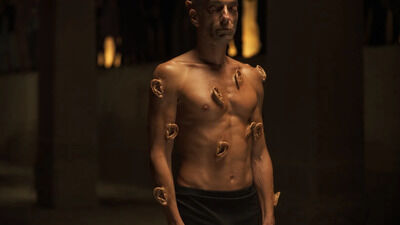In both “Immaculate” and “The First Omen,” loss of bodily control is not just a betrayal, it goes hand in hand with abuse. Both are let down in the most egregious of ways, impregnated against their will, and kept in the dark until they seek answers for themselves about what’s happening to their bodies. It’s all couched in the familiar trappings of demonic horror, but it feels like a reflection of what happens to real people every day, especially in the wake of Dobbs overturning Roe v. Wade.
“The First Omen,” in particular, isn’t afraid to let us see the world through the eyes of Margaret. We are with her through the movie, seeing the hallucinations she suffers from, experiencing the ecstasy of her first dance at a nightclub, and discovering all the horrifying secrets about her past and her church when she does. This strong point of view solidifies the gruesome betrayal she experiences — and the foreshadowing in her hallucinations articulates the horror of being forced to carry something inside you against your will. In a sequence destined to be an instant classic, Margaret watches a pregnant woman giving birth through the infirmary window at the orphanage. A long, pointed hand reaches out of the woman and into the world, demonic and dreadful.
It’s a terrifying way to portray the unforgivable: being forced to carry something that can kill you, something that you didn’t even consent to in the first place. Not long after Margaret realizes she’s carrying the anti-Christ, her body begins to lose control quite literally, her belly growing instantly with pained contortions and bodily fluids, mirroring the iconic subway scene from “Possession.” The abuse she’s endured has tangible, debilitating consequences.
These films understand the fears, anxieties, and anger at living in a world that constantly wants to exert control over the human body. They understand the stakes of our fight for bodily autonomy and let us confront them in the cool dark of a theater.
